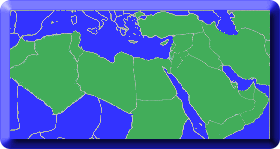
Topics in Middle Eastern and North African Economies
Document Type
Article
Publication Date
5-1-2020
Journal Title
Topics in Middle Eastern and North African Economies
Volume
22
Issue
1
Publisher
Middle East Economic Association and Loyola University Chicago
Abstract
Eradicating extreme poverty – $1.90 per day international poverty line – remains one of the main, but challenging Sustainable Development Goals (SDGs) in the Middle East and North African (MENA) region. As per the latest World Bank statistics of 2018, extreme poverty in the MENA region has increased from 2.7% to 5% over the period from 2013 to 2015. The region ranks as the third highest in the developing regions and has fell short of reducing extreme poverty to half by the year 2015. Using system GMM dynamic panel estimation methodology on annual data for eleven MENA countries and twenty-three Emerging Markets (EMs) over the period 1990 - 2017, the first part of the study estimates the role of financial inclusion – using measures of access and usage – in eradicating extreme poverty (the first goal of SDG). The second part of the study employs a gap analysis to predict the ability of the MENA and EMs countries to achieve the extreme poverty goal by the year 2030 by depending only on the improvement in financial services and no other factors. The results of the study indicate that on one hand financial access measures have a positive statistically significant impact on reducing extreme poverty for the full sample as well as the MENA region. On the other hand, the results suggest that financial usage measures are only statistically significant in reducing extreme poverty for the full sample but not for the MENA region. Finally, the results of the gap analysis show that if current trends of financial access measures continue, all the countries of the MENA region will not be able to close the extreme poverty gap goal by the year 2030 if they depend only on the improvement of the financial access services and no other factors. The results of the gap analysis for the EMs sample shows that only three countries will lag behind in achieving the first goal of the SDGs by the year 2030. Policy considerations can be directed towards developing and promoting the infrastructure needed for the widespread delivery and usage of financial services especially for the countries lagging behind in achieving the extreme poverty goal in the MENA region and EMs.
ISSN
2334-282X
Recommended Citation
Emara, Noha and Mohieldin, Mahmoud, "Financial Inclusion and Extreme Poverty in The MENA Region: A Gap Analysis Approach". Topics in Middle Eastern and North African Economies, electronic journal, 22, 1, Middle East Economic Association and Loyola University Chicago, 2020, http://www.luc.edu/orgs/meea/
Creative Commons License

This work is licensed under a Creative Commons Attribution-Noncommercial-No Derivative Works 3.0 License.
Copyright Statement
© The Author(s), 2020



Comments
Presentation of the articles in the Topics in Middle Eastern and North African Economies was made possible by a limited license granted to Loyola University Chicago and Middle East Economics Association from the authors who have retained all copyrights in the articles.